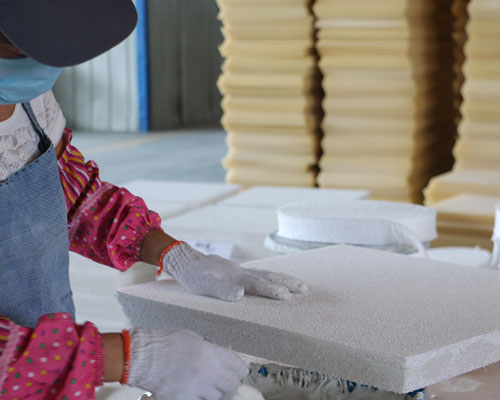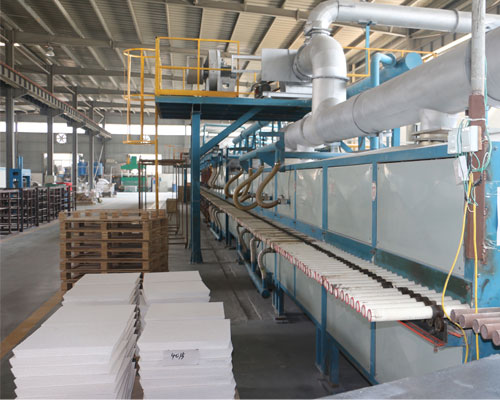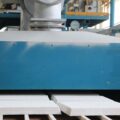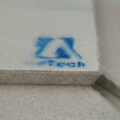In the past ten years, according to the characteristics of different alloys, ceramic foam filters of different materials have been developed at home and abroad to filter molten metal. Especially for the filtration of aluminum and aluminum alloys, the alumina ceramic foam filter is suitable for filtering aluminum alloys.
Aluminum alloy is easy to absorb gas and mix in non-metallic impurities in the process of smelting and forming castings, thereby reducing the serviceability and processing performance of castings. The use of ceramic foam filters is the most effective way to remove heterogeneous impurities in the aluminum melt. Studies have shown that the use of ceramic foam filters for the filtration of aluminum alloy melts can reduce the hydrogen content in the aluminum melt while removing slag.
Due to the relatively low temperature of aluminum and aluminum alloy metal melts, the use temperature of alumina ceramic foam filters is also low. Under the premise of meeting the requirements of use, the use of low-temperature sintering process to make alumina ceramic foam filters is the best economically reasonable. With the increasing requirements for the quality of aluminum products, the requirements for alumina ceramic foam filters are also getting higher and higher.

Alumina ceramic foam filter for aluminum alloys is composed of alumina and silica ceramic powder, and then polyvinyl alcohol, silica sol and water are added to prepare slurry, and soft polyurethane foam is used as a carrier to impregnate the slurry. It is pressed into a blank, dried and sintered to obtain an alumina ceramic foam filter.
AdTech alumina foam ceramic filter for aluminum alloys has good high temperature stability in aluminum alloy melt, does not pollute the alloy, has good filtering and adsorption capacity for oxidized inclusions and flux inclusions in molten metal, and has a good filtering and purification effect. No foam filter piece drops under the impact of thermal stress at 650-720℃, which can effectively reduce the pollution of molten aluminum, and improve the surface quality, product performance, and microstructure of your products.



